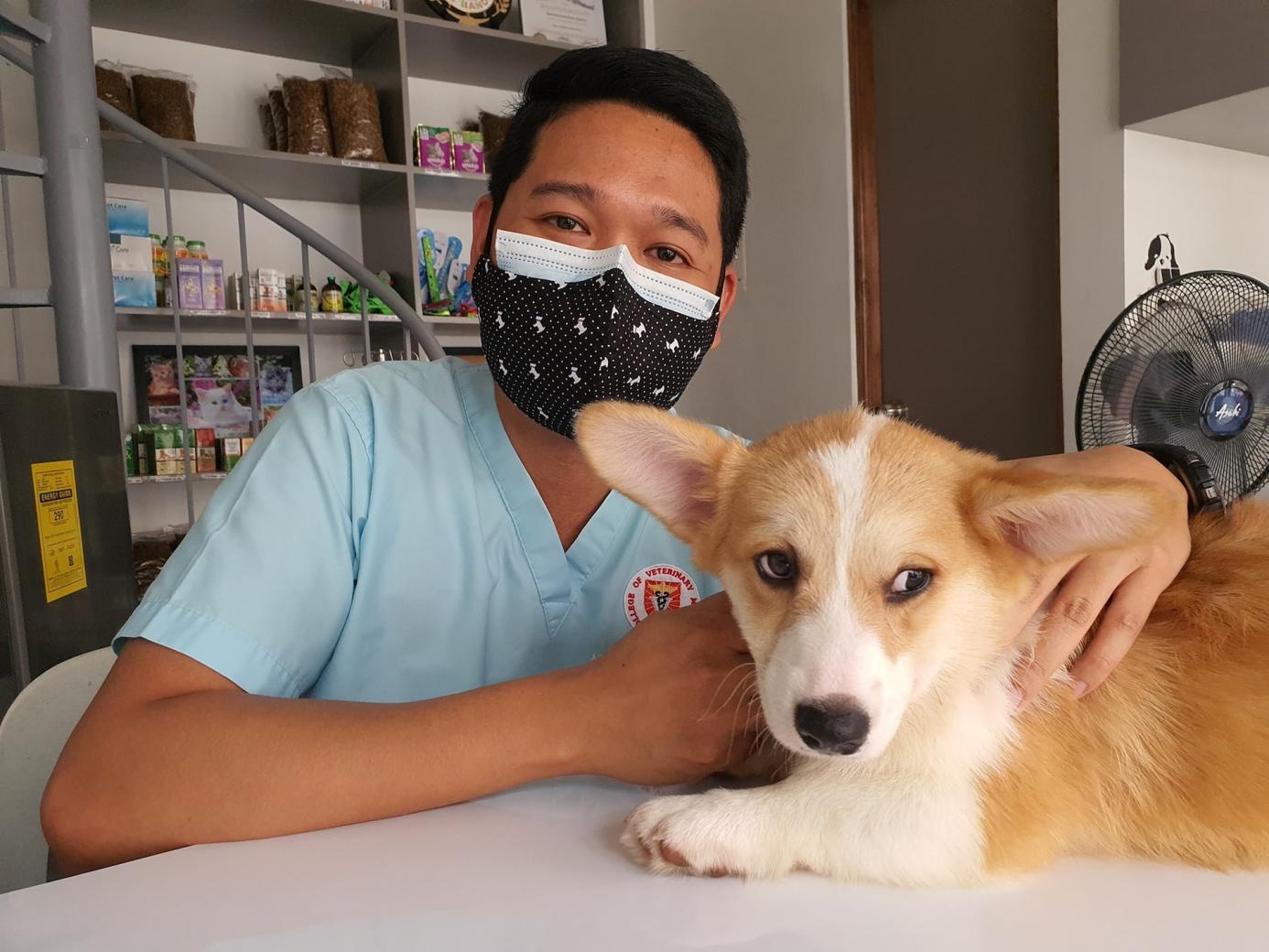Caring for a pet dog could be challenging, especially when they fall ill. Canines don’t know how to tell you if they are in pain or feeling unwell.
As a pet owner, it’s up to you to look for warning signs indicating your pet is sick. At first, it could be difficult to rule out any illness, but a few signs suggest you should take your dog to the vet.
This article indicates how to tell if your dog is sick, including symptoms and treatments.
How To Tell If Your Dog Is Sick?

Your dog could be in severe pain or just mild discomfort. However, it’s up to you to take it to the vet if its condition doesn’t change or worsen. Here are the symptoms that indicate your dog is feeling unwell.
- Vomiting and Diarrhea
- Loss of Appetite
- Changes in Drinking Patterns
- Increased or Decreased Urination
- Increased or decreased urination
- Straining to urinate
- Bloody urine
- Unexplained Weight Gain or Loss
- Feeling Lethargic
- Changes in Character
- Changes in the Gums
- Troubled Breathing, Coughing, or Wheezing
- Hair Loss or Itchy Skin
- Stiffness or Lameness
- Unusual Stool
- Diarrhea for over 24 hours
- Blood or mucus in the stool
- Worms in the stool
- Straining when passing stool
- Changes in the Eyes
- The nature and frequency of symptoms that your dog is showing.
- Current medications of your dog.
- Your dog’s health history, including past medications and procedures.
- A total blood count to rule out possibilities of blood-related conditions.
- Chemistry and electrolyte tests to check the status of internal organs.
- A urine test to evaluate the state of the kidneys.
- ECG to screen for abnormal heart rhythm.
- A thyroid test to rule out any possibility of thyroid hormone-related conditions.
- How Do Dogs Behave When They Are Sick?
- How Can You Treat A Sick Dog At Home?
- Why Do Dogs Vomit White Foam?
Vomiting and diarrhea are often the first signs indicating that something is wrong with your dog, and it’s also a common symptom among sick dogs for various reasons.
The reasons for vomiting and diarrhea in dogs could be due to different causes, including viral or bacterial infections, diet change, motion sickness, or ingestion of a foreign object.
If vomiting continues for more than 24 hours and is associated with lethargy, weakness, etc., you should take your dog to the vet.
It is natural for dogs to eat more food one day and a little bit of food the next day. However, loss of appetite could sometimes be mild or indicate a severe problem in your dog, and a serious condition could be associated with symptoms such as weakness and lethargy.
You can check this by giving your dog a few of his favorite treats. If he refuses to eat these and the problem lasts more than a day, you must take your dog to a vet.
Drinking too little or too much water than usual could also indicate a problem in your dog. Drinking too little water could mean a general sickness such as fever. Drinking too much water could be related to diabetes, kidney disease, or hormone issues.
If your dog drinks less than usual, try keeping water bowls around the house or flavoring the water by adding something like chicken broth.
If your dog’s water intake is high, ensure it’s urinating more. If the problem continues, it’s best to take your dog to the vet.
Properly house-trained dogs do not usually urinate all around the house. Therefore, if you see this type of behavior or any other changes in urinating habits in your dog, it could indicate a severe problem.
Keep an eye out for the following:
Excessively urinating could be due to diabetes or kidney disease in your dog. Blood in the urine could indicate infection, bladder stones, or cancer.
If you notice the above changes in urinating, don’t delay taking your dog to the vet.
Sudden weight loss or gain in your dog is almost always due to some health issue. Sometimes, it might take weeks for you to notice a weight change.
You should take it to the vet if there’s a ten percent difference in your dog’s weight. Even a pound difference in weight in tiny dogs calls for a checkup.

If your dog feels increasingly lethargic, it could indicate an underlying health issue. Lethargic dogs are uninterested in going for walks, playing, or participating in any activity they usually enjoy doing.
General fatigue and sore muscles could occur due to high temperatures in your dog. However, if your dog continuously feels lethargic for more than two days, it’s time to take it to a vet.
Behavioral changes in dogs are expected when they are feeling unwell. It might indicate a problem if your dog shows weakness and social withdrawal.
Also, if you notice your dog cringing when you approach a particular part of its body, it could be the source of discomfort.
If your dog changes in personality and behavior along with vomiting, diarrhea, loss of appetite, abdominal pain, etc., it’s time to take it to the vet.
Changes in your dog’s gums could also indicate health problems. If your dog’s gums are pale, it could stem from experiencing anemia or suffering from shock.
Red or swollen gums and bad breath may indicate gum disease in your dog. If this is the case, you need to take your dog to the vet, as this is a severe problem that could lead to tooth loss and weight loss due to difficulty eating.
Troubled breathing, wheezing, coughing, and nasal discharge indicate that your dog suffers from a respiratory ailment. It could be as simple as a cold or dog flu to something as serious as heart failure.
Therefore, don’t delay taking your dog to the vet if you identify any of these symptoms because they could be life-threatening.
Hair loss, which is also known as alopecia, is a condition that occurs due to allergies, skin infections, or fleas. It can cause a lot of discomfort for dogs.
If you find your dog suffering from this condition, check his skin for fleas, discharge, swelling, or redness. You can soothe mild symptoms at home. However, if your dog’s symptoms are severe, you must take it to a vet.
If your dog is limping or has difficulty walking, it could be due to joint infections, hip dysplasia, arthritis, or a broken bone.
If the condition is mild, you can give your dog a day’s rest so that it’ll recover and be fine the next day. However, if the problem persists or your dog is in severe pain, you must take it to a vet.
Your dog’s stools can tell a lot about its health condition. A healthy dog’s stools are usually small, moist, and firm. If your dog’s stools are dry and hard, it could suffer from dietary issues.
Be aware of the below symptoms in your dog and take it to the vet as soon as possible.
Changes in your dog’s eyes could also indicate health problems. Excessive squinting and runny or red eyes could indicate mild infection, ulceration, or even glaucoma.
If your dog shows any of the above symptoms or is rubbing its eyes excessively, immediately take it to a vet. Ignoring these signs could even cause permanent blindness in your dog.

Diagnosis and Treatment Procedures
If you identify any of the above symptoms in your dog, you must take the necessary actions immediately. Your dog will not walk up and tell you it’s sick.
You need to keep an eye on any signs that indicate your dog is unwell and take it to the vet. Your vet would ask you for information on the following.
The vet might sometimes conduct preventative care testing, including the following.

Prevention
Prevention is better than cure, so it’s always better to have an annual vet appointment. Early detection of disease makes your dog most likely to respond to treatment.
An annual vet appointment will ensure your dog’s health status and help maintain optimal health. It’s easier to detect anomalies and patterns when a generally healthy dog falls sick.
In addition, you must keep your dog healthy by giving it nutritious food. You also need to take your dog for walks to get adequate physical stimulation.
Remember to use a dog collar when going out for walks or training sessions. Choose one of the best shock collars if you want a positive experience using them on your dog.
Conclusion
Knowing if your dog is sick can prevent an illness from becoming more severe or fatal. Therefore, you must look for telltale signs that indicate a health problem in your dog.
If you suspect anything, take your dog to the vet without delay for necessary detection and treatment of illness.
Frequently Asked Questions
Dogs show behavioral changes, such as lethargy and decreased energy, when they are sick.
Give your dog water and white meat, such as boiled fish or boiled chicken, to comfort it when it shows mild symptoms. However, if symptoms are severe, take it to the vet immediately.
Dogs usually vomit white foam when they suffer from gastrointestinal problems. It could be an emergency where the dog requires veterinary care.
Check out the Best Pet Insurance that will suit you and your Pet at https://www.theinsuredpet.com/insurance-review






















